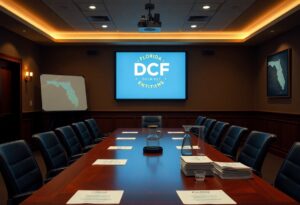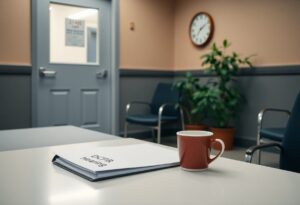How Can Professionals Mount a Defense Against DCF Neglect Allegations After a Workplace Error?
In Massachusetts, mounting a defense against DCF neglect allegations can be daunting for professionals. Ada, a dedicated school nurse, made an honest mistake by giving a student the wrong medication dose during a busy shift. This simple error led to a Massachusetts DCF neglect allegation, threatening her career and reputation. Ada felt distraught and scared, realizing how one mistake could jeopardize her life’s work.
Professionals like Ada, who are accused of child neglect due to workplace incidents, often find themselves battling the DCF. The DCF brings severe charges that can impact their jobs and lives. The situation seems dire, with the DCF’s actions causing immense stress and fear.
Understanding how to synthesize a defense against DCF neglect allegations is crucial. This article will guide you through the steps needed to clear your name and protect your career. Continue reading to learn how to navigate this challenging process and ensure a strong defense.
What Do MA DCF Neglect Allegations Entail?
Child neglect allegations by the Massachusetts Department of Children and Families (DCF) can arise from various errors in workplaces that involve children, such as schools and hospitals. Understanding what constitutes neglect is crucial for professionals who find themselves accused. These allegations can lead to severe consequences, including losing professional licenses and careers.
What Qualifies as Neglect?
DCF defines neglect as failing to provide basic needs like food, shelter, medical care, or safety. This can include situations where a child is left without proper supervision, resulting in harm or risk.
It is essential to distinguish between neglect and an honest mistake made under pressure. For instance, missing a step in a medical procedure due to an emergency might be an honest error, whereas consistently failing to meet a child’s needs could be seen as neglect.
What Are Common Workplace Incidents That Lead to DCF Allegations?
Several types of incidents in professional settings can lead to DCF neglect allegations. Understanding these can help professionals take preventive measures and prepare a strong defense if accused.
- Medical Errors: Administering the wrong dose of medication is a common cause of neglect charges. Also, overlooking important medical information can lead to adverse effects. Data shows that documentation errors contribute significantly to medical negligence cases.
- Supervision Lapses: Failing to supervise children adequately can lead to serious injuries or risk of harm. For example, a teacher who leaves a classroom unattended may be accused of neglect if a student gets hurt. In Massachusetts, supervision lapses account for a significant portion of the neglect allegations investigated by DCF.
- Miscommunication: Errors arising from miscommunication among staff members can also lead to neglect charges. This might include incorrect information being passed between shifts in a hospital or school setting, resulting in a child not receiving necessary care. Numerous industry studies highlight that effective communication is crucial in preventing such incidents.
A Nurse’s Honest Mistake vs. Neglect Allegations

Professionals can find themselves facing serious charges from DCF due to honest mistakes. A real case involving Ada, a school nurse, highlights how such situations can unfold. This case study will show the complexities of DCF allegations and the strategies used for defense against DCF neglect allegations.
Case Overview
Ada, a school nurse, was accused of neglect after she accidentally gave a child too much insulin. She was filling in for another nurse and was unfamiliar with the syringe. The child was taken to the hospital, but thankfully, there was no lasting harm. Medication errors are a significant concern in Massachusetts, with numerous reports annually leading to investigations by DCF.
The DCF responded by filing a neglect allegation against Ada. This could have ended her career and damaged her reputation. The initial impact was severe stress and fear of losing her job, illustrating how quickly an honest mistake can escalate into a serious legal issue.
Strategic Defense Plan
For defense against DCF neglect allegations, a clear plan was made. The defense involved gathering all relevant evidence, including medical records and witness statements, and consulting with medical experts. These steps proved that the mistake was an honest error, not neglect.
- Evidence Collection: Detailed records were gathered to show Ada’s history and the specifics of the incident.
- Expert Consultation: Medical experts were consulted to provide testimonies. They explained that medication errors, like administering the wrong insulin dose, are unfortunately common in high-pressure environments.
- Legal Strategy: Within 30 days, a request for a Fair Hearing was made. This allowed the defense to present their case formally and argue that the incident was a mistake, supported by expert evidence.
Statistics show that medication errors affect at least 1.5 million people in the U.S. annually, with a significant number occurring in school settings. By demonstrating Ada’s previous clean record and the immediate corrective actions taken, the defense team successfully argued that the incident was a mistake, not neglect.
The defense plan’s success led to the reversal of the DCF’s decision. This outcome saved Ada’s career and provided a roadmap for other professionals facing defense against DCF allegations.
What is the Legal Defense Against DCF Neglect Allegations?
Defense against DCF neglect allegations needs a strong legal plan. Defense against DCF neglect allegations requires a detailed strategy, expert testimonies, and a deep understanding of DCF procedures. This section will provide an overview of effective legal defense methods, emphasizing the importance of a robust approach.
Building a Strong Defense
A strong defense against DCF neglect allegations starts with thorough evidence collection. Key evidence includes medical records, incident reports, and witness statements, which can prove the incident was an honest mistake. Consulting with industry experts can further strengthen your case, as they can provide insights into standard practices and common errors in high-pressure environments.
- Gather Medical Records: Documenting the incident through detailed medical records is essential.
- Collect Witness Statements: Statements from colleagues and other witnesses can support your version of events.
- Expert Consultation: Industry experts can provide valuable testimony to explain why the mistake occurred.
Ensuring all evidence is meticulously organized and presented can make a significant difference in the outcome of your case.
The Role of Fair Hearings
A Fair Hearing is a critical opportunity in the defense against DCF neglect allegations. Requesting a Fair Hearing within 30 days of the allegation is crucial to ensure your right to present your case. During this hearing, you can submit evidence, call witnesses, and provide expert testimonies to challenge the neglect allegation.
- Request Timely: Submit your request for a Fair Hearing promptly within the 30-day window.
- Prepare Evidence: Prepare and organize all relevant documents and testimonies to present effectively.
- Present Your Case: Clearly articulate how the incident was an honest mistake, supported by expert insights and evidence.
Fair Hearings are significant because they offer a formal platform to dispute DCF’s conclusions and seek a fair resolution. They serve as a powerful tool in the defense against DCF neglect allegations
Expert Testimonies and Evidence
Expert testimonies play a pivotal role in the defense against DCF neglect allegations. Experts can attest that certain errors are common in high-stress jobs and do not necessarily indicate neglect. Their professional opinions can provide context and clarity, helping to differentiate between a mistake and negligence.
- Medical Experts: Can explain the frequency and nature of medical errors, particularly in high-pressure settings.
- Industry Specialists: Can provide insights into standard procedures and common pitfalls in your profession.
- Case Studies: Use relevant case studies and data to support your defense.
Expert testimonies can greatly influence the outcome by providing authoritative, unbiased perspectives on the incident.
Why Is Legal Representation Important When Creating a Defense Against DCF Neglect Allegations?
Having a qualified attorney is vital when creating a defense against DCF neglect allegations. A skilled DCF defense lawyer can navigate the complex legal process, advocate for your rights, and help protect your professional license. Legal representation ensures that your defense is thorough, strategic, and well-presented.
- Legal Guidance: A DCF attorney can guide you through each step of the DCF investigation process and defense process.
- Protection of Rights: DCF Lawyers ensure that your rights are protected throughout the proceedings.
- Strategic Defense: An experienced DCF lawyer can develop and execute a comprehensive defense strategy tailored to your case.
Effective legal representation is essential for mounting a strong defense against DCF neglect allegations and safeguarding your career.
Key Takeaway
Defense against DCF neglect allegations requires thorough evidence, expert consultation, and understanding fair hearings. By documenting incidents and using expert testimonies, professionals can show that honest mistakes are not neglect. Legal representation is crucial for protecting your rights and career.
Staying informed about DCF procedures and best practices is essential. Seeking legal advice and staying vigilant can help prevent misunderstandings and mitigate risks. Professionals can confidently face and overcome DCF allegations with the right strategies and support.
You find yourself in this situation, it’s advisable to seek legal representation from a qualified attorney, like those at the Law Office of Kevin Seaver, who can advocate for your rights and guide you through the complex process of a DCF investigation.
Remember that the ultimate goal of DCF is to ensure the safety and well-being of children while supporting families in crisis.
Please note that this article does not create an Attorney-Client relationship between our law firm and the reader and is provided for informational purposes only. Information in this article does not apply to all readers.
Readers should not rely on this information as legal advice and should seek specific counsel from the attorney based on personal circumstances. Thank you.
Kevin Patrick Seaver is a Massachusetts DCF Defense Lawyer who represents parents against false child abuse allegations.





